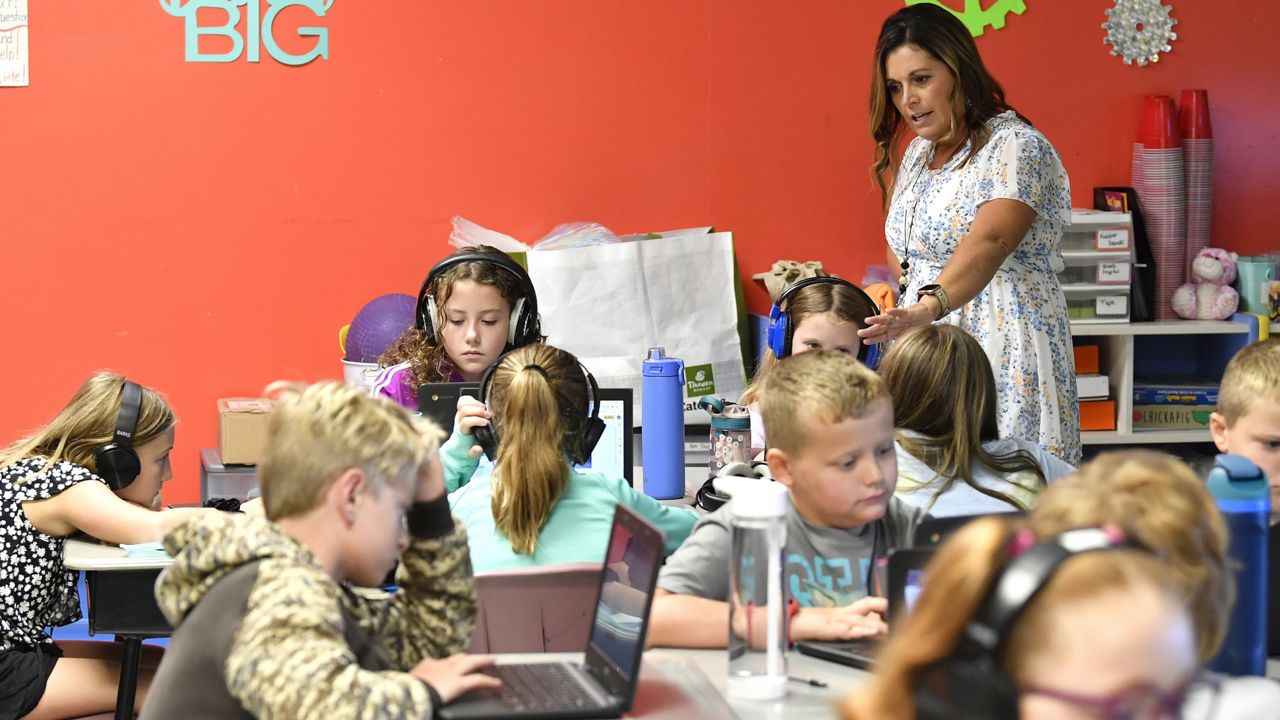The Biden administration on Monday announced it will release $280 million to support mental health efforts in the nation’s public schools by training more providers and making it easier for schools to access licensed professionals.
The funds will come in the form of two grant programs: The School-Based Mental Health Services Grant Program and the Mental Health Service Professional Demonstration Grant Program. Money for the programs will come from both the bipartisan Safer Communities Act, signed into law by President Joe Biden in June, as well as the Consolidated Appropriations Act of 2022, signed into law in March.
One program will provide funds to schools to hire certified mental health professionals, while the other will “support districts in hiring additional school-based mental health service providers in high-need districts by boosting the mental health profession pipeline,” per a release from the White House.
Both programs aim to address the national dirth of qualified counselors, an issue made worse by a dire mental health epidemic among young Americans spurred on by the COVID-19 pandemic.
According to recent data from the National Center for Education Statistics, just over half of the nation’s public schools felt they could properly provide mental health services for students in need, while 70% of public schools reported more students sought mental health services at school since the COVID-19 pandemic began.
The three most-cited barriers to serving students’ needs were insufficient qualified professionals to tackle the volume of issues at each school; lack of access to licensed mental health professionals and scant resources to address either issue.
"For too long, schools have lacked the resources to hire enough school-based mental health providers, when at the same time, educators are often first to notice when a student is slipping academically or struggling because of mental health challenges," education secretary Miguel Cardona wrote in a statement. "We know children and youth can’t do their best learning when they’re experiencing depression, anxiety, and other mental health challenges whether they stem from community violence, social isolation from the pandemic, loss of loved ones, bullying, harassment, or something else.”
The youth mental health crisis in the United States has been deepening for some time, though the challenges were exacerbated at the onset of the coronavirus pandemic.
According to data from the U.S. Centers for Disease Control and Prevention, pediatric mental health-related emergency room visits increased dramatically starting in April 2020, and remained elevated through at least October of last year. Mental health–related visits for children aged 5–11 increased by 24% compared to 2019, with such visits for 12–17 year olds rising approximately 31% in the same time period.
A separate CDC study showed that from Feb. 21–March 20, 2021, suspected emergency room visits for suicide attempts among girls aged 12–17 increased by over 50% compared to 2019; the same visits for boys aged 12–17 increased by just above 3% in the same time frame.
In late 2021, surgeon general Dr. Vivek Murthy issued a rare public health advisory saying young people in America were experiencing an “alarming” and “widespread” mental health crisis — and that systemic change was needed in order to tackle the issue.
“The pandemic era’s unfathomable number of deaths, pervasive sense of fear, economic instability, and forced physical distancing from loved ones, friends, and communities have exacerbated the unprecedented stresses young people already faced,” Murthy wrote in part, noting that adolescent mental health issues were already on the rise before the coronavirus pandemic took hold.
“It would be a tragedy if we beat back one public health crisis only to allow another to grow in its place,” he added.
In concert with Monday’s notice of grant opportunities from the Department of Education was an announcement of $27 million in grants from the Department of Health and Human Services to support mental health care for young children, primarily by training pediatricians and related professionals in treating mental health conditions and by “providing tele-consultation to bring mental health expert support directly to pediatric primary care providers,” per HHS.
That $27 million will be split across various programs. Forty-eight awardees will receive $300,000 to expand youth mental health services; three national organizations will receive a cumulative $3.2 million to help grantees “expand and improve behavioral health services in pediatric practices, schools and emergency departments.” Another $9 million will go towards launching new, multi-year programs thanks to funding from the American Rescue Plan.



